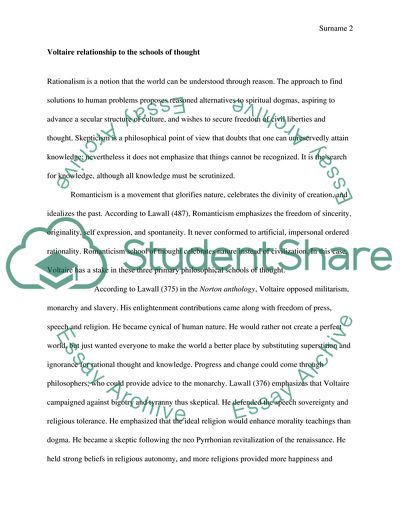Cite this document
(“Rationalism, skepticism, and romanticism were three primary Research Paper”, n.d.)
Retrieved from https://studentshare.org/literature/1596653-rationalism-skepticism-and-romanticism-were-three-primary-philosophicalschoolof-thought-during-the-enlightenment-how-does-voltaire-relate-to-these-notionsif-at-all-in-candide
Retrieved from https://studentshare.org/literature/1596653-rationalism-skepticism-and-romanticism-were-three-primary-philosophicalschoolof-thought-during-the-enlightenment-how-does-voltaire-relate-to-these-notionsif-at-all-in-candide
(Rationalism, Skepticism, and Romanticism Were Three Primary Research Paper)
https://studentshare.org/literature/1596653-rationalism-skepticism-and-romanticism-were-three-primary-philosophicalschoolof-thought-during-the-enlightenment-how-does-voltaire-relate-to-these-notionsif-at-all-in-candide.
https://studentshare.org/literature/1596653-rationalism-skepticism-and-romanticism-were-three-primary-philosophicalschoolof-thought-during-the-enlightenment-how-does-voltaire-relate-to-these-notionsif-at-all-in-candide.
“Rationalism, Skepticism, and Romanticism Were Three Primary Research Paper”, n.d. https://studentshare.org/literature/1596653-rationalism-skepticism-and-romanticism-were-three-primary-philosophicalschoolof-thought-during-the-enlightenment-how-does-voltaire-relate-to-these-notionsif-at-all-in-candide.


